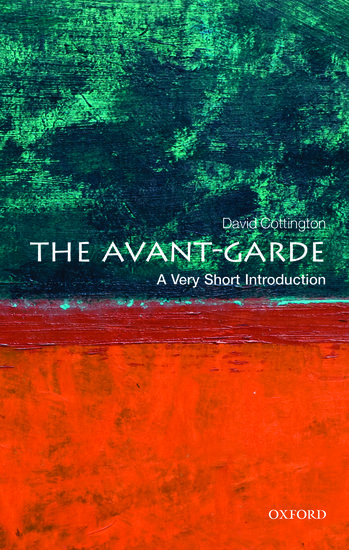Home >
A Very Short Introduction >
Comedy (Art)
A Very Short Introduction | Art
Comedy
ISBN: 9780199582730
Series: A Very Short Introduction
Comedy (Art)
A Very Short Introduction Comedy (Art) Media > Books > Non-Fiction > Education Books Expect Delays of Up to 4 Weeks| Order Below |
ISBN
9780199582730 (10-digit ISBN: 0199582734)
- Description
- Key Features
- Series Description
- Table of Contents
- Explores many different forms of comedy from the Greeks to the present
- Takes examples from both high and low culture, and from several different literatures and languages
- Develops a comparitive approach which allows comic theory and practice to shed new light upon one another
- Offers both close readings and broad overviews of comic styles, tropes and impulses
- Written in a witty and engaging style
To consider comedy in its many incarnations is to raise diverse but related questions: what, for instance, is humour, and how may it be used (or abused)? When do we laugh, and why? What is it that writers and speakers enjoy - and risk - when they tell a joke, indulge in bathos, talk nonsense, or encourage irony? This Very Short Introduction explores comedy both as a literary genre, and as a range of non-literary phenomena, experiences and events. Matthew Bevis studies the classics of comic drama, prose fiction and poetry, alongside forms of pantomime, comic opera, silent cinema, popular music, Broadway shows, music-hall, stand-up and circus acts, rom-coms, sketch shows, sit-coms, caricatures, and cartoons. Taking in scenes from Aristophanes to The Office, from the Roman Saturnalia to Groundhog Day, Bevis also considers comic theory from Aristotle to Freud and beyond, tracing how comic achievements have resisted as well as confirmed theory across the ages.This book takes comedy seriously without taking it solemnly, and offers an engaging study of the comic spirit which lies at the heart of our shared social and cultural life.
Oxford's Very Short Introductions series offers concise and original introductions to a wide range of subjects--from Islam to Sociology, Politics to Classics, Literary Theory to History, and Archaeology to the Bible.
Not simply a textbook of definitions, each volume in this series provides trenchant and provocative--yet always balanced and complete--discussions of the central issues in a given discipline or field. Every Very Short Introduction gives a readable evolution of the subject in question, demonstrating how the subject has developed and how it has influenced society. Eventually, the series will encompass every major academic discipline, offering all students an accessible and abundant reference library.
Whatever the area of study that one deems important or appealing, whatever the topic that fascinates the general reader, the Very Short Introductions series has a handy and affordable guide that will likely prove indispensable.
Please note: As this series is not ELT material, these titles are not subject to discount.
Introduction
1: In the beginning...
2: In and out of character
3: Plotting mischief
4: Underdogs
5: Getting physical
6: Taking liberties
7: Beyond a joke
8: Endgames
Conclusion
To consider comedy in its many incarnations is to raise diverse but related questions: what, for instance, is humour, and how may it be used (or abused)? When do we laugh, and why? What is it that writers and speakers enjoy - and risk - when they tell a joke, indulge in bathos, talk nonsense, or encourage irony? This Very Short Introduction explores comedy both as a literary genre, and as a range of non-literary phenomena, experiences and events. Matthew Bevis studies the classics of comic drama, prose fiction and poetry, alongside forms of pantomime, comic opera, silent cinema, popular music, Broadway shows, music-hall, stand-up and circus acts, rom-coms, sketch shows, sit-coms, caricatures, and cartoons. Taking in scenes from Aristophanes to The Office, from the Roman Saturnalia to Groundhog Day, Bevis also considers comic theory from Aristotle to Freud and beyond, tracing how comic achievements have resisted as well as confirmed theory across the ages.This book takes comedy seriously without taking it solemnly, and offers an engaging study of the comic spirit which lies at the heart of our shared social and cultural life.
Key Features
- Explores many different forms of comedy from the Greeks to the present
- Takes examples from both high and low culture, and from several different literatures and languages
- Develops a comparitive approach which allows comic theory and practice to shed new light upon one another
- Offers both close readings and broad overviews of comic styles, tropes and impulses
- Written in a witty and engaging style
Series Description
Oxford's Very Short Introductions series offers concise and original introductions to a wide range of subjects--from Islam to Sociology, Politics to Classics, Literary Theory to History, and Archaeology to the Bible.
Not simply a textbook of definitions, each volume in this series provides trenchant and provocative--yet always balanced and complete--discussions of the central issues in a given discipline or field. Every Very Short Introduction gives a readable evolution of the subject in question, demonstrating how the subject has developed and how it has influenced society. Eventually, the series will encompass every major academic discipline, offering all students an accessible and abundant reference library.
Whatever the area of study that one deems important or appealing, whatever the topic that fascinates the general reader, the Very Short Introductions series has a handy and affordable guide that will likely prove indispensable.
Please note: As this series is not ELT material, these titles are not subject to discount.
EASY ORDER FORM
PRICES LISTED INCLUDE CONSUMPTION TAX
Price Before Tax:
¥1,790


